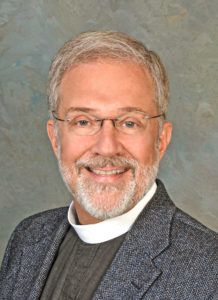 Progressive Voice is a bi-weekly opinion column. The views expressed are solely the author’s.
Progressive Voice is a bi-weekly opinion column. The views expressed are solely the author’s.
By Rev. Jonathan Linman
A year ago, Resurrection Lutheran Church in Westover voted to call me as their pastor. Shortly thereafter, the global pandemic was declared and the congregation, in keeping with safety protocols, discontinued meeting for Sunday worship. Only once have I experienced this congregation as a people that actually congregates in the church building in person on Sundays!
Meanwhile, our entire nation entered into at least three intersecting crises – the pandemic, the economic upheaval that resulted, along with people pouring into the streets throughout the country to protest unjust killings of Black persons at the hands of police.
What a way to begin a new ministry with people I barely knew, and to seek to lead them through these crises. Yet, there was significant energy among leaders in our Congregation Council (our board of directors) to respond to the crises.
In response to the pandemic, motivated by love of our most vulnerable neighbors, and like most other churches, we went online and provided resources for worship at home. In response to the economic crisis, we are collecting food twice a month, a doubling of our usual practice, donating what we collect to the Arlington Food Assistance Center. In response to the call for racial justice, our Council voted in June 2020 to place Black Lives Matter signs and banners on our church property to publicly signal support for racial justice.
This latter initiative, as you can imagine, provoked the most energetic response. Within an hour of the signs’ placement, I began to receive emails and phone messages both from members of the congregation and people in the wider community expressing opposition to the signs on church property. There were also expressions of support for this public witness.
The decision to place the Black Lives Matter signs was the result of thoughtful deliberation by the lay leaders on our Council. But the deliberation was undertaken via meetings on Zoom and within group email exchanges – not ideal ways to engage on sensitive and difficult topics. Yet, the urgency of our days prompted the decision to go forward with the signs.
Alas, thoughtful deliberation about all of this did not benefit from the salutary effects of people gathering in person, face to face, for heartfelt conversation. Moreover, there was not occasion to hear from wider segments of the congregation so that viewpoints across the political spectrum could be heard. I regret that, but the urgency of the crises and the limitations of our digital formats precluded what otherwise might have been a more holistic and orderly process of discernment and decision-making.
As pastor of this congregation, I certainly hold forth a vision that our church will be a community of moral discernment that thoughtfully engages the salient issues of our day in ways that honor and respect a wide array of viewpoints – conservative, progressive and moderate. I especially envision this congregation to be a place of civil civic discourse, a reality in short supply during these divisive days across our nation. I hope that ours will be a congregation in which we can agree to disagree on some topics, and yet remain in community together, bound to each other in the love of God for the sake of the healing of the nations.
Still, amidst the messiness of our pandemic-induced realities, our Council resolved to make public our support for racial justice. It strikes me that this is in keeping with our congregation’s Lutheran tradition when Martin Luther, protesting the materialism and the spiritual and theological abuses of the church in his day, nailed his 95 Theses to the church door, ultimately saying, “Here I stand, I can do no other. So help me God.”
Jonathan Linman is Pastor of Resurrection Lutheran Church on Washington Boulevard in Arlington. In May of 2020 he relocated here after 18 years in New York City, where he was a professor at The General Theological Seminary of the Episcopal Church and a Bishop’s Assistant in the Metropolitan New York Synod of the Evangelical Lutheran Church in America.

